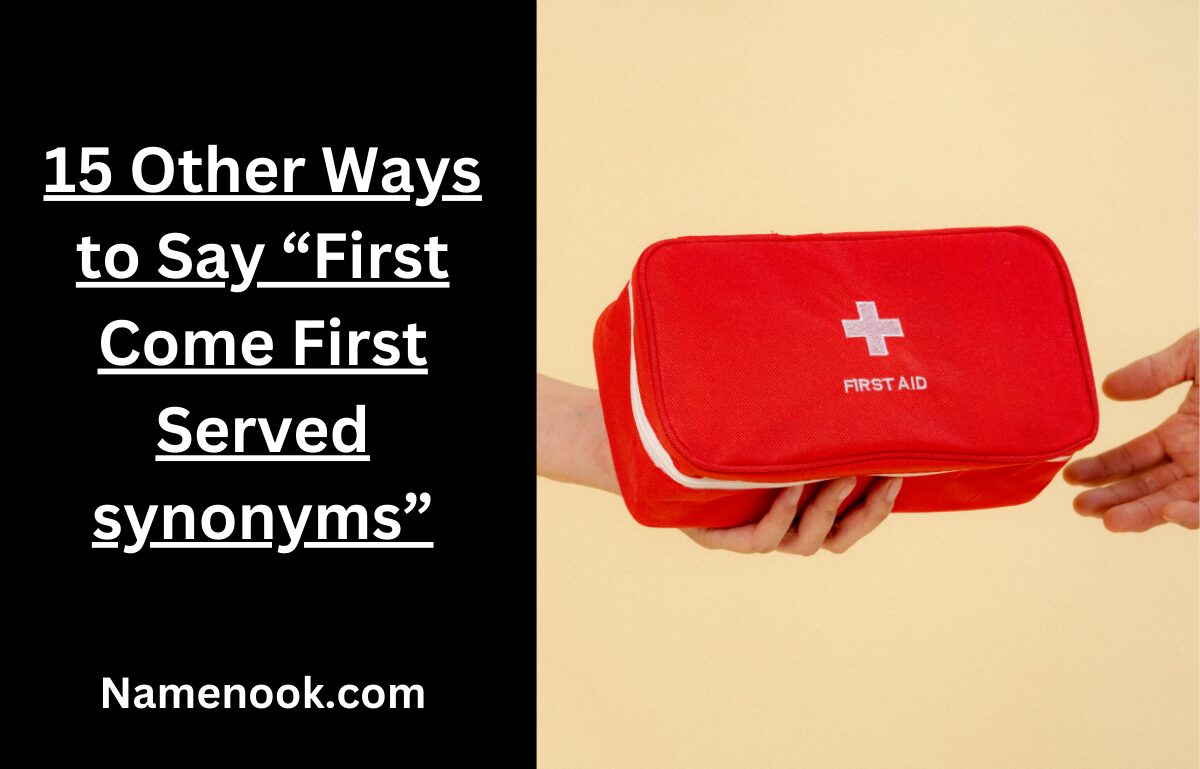This idiomatic phrase suggests that those who arrive early have an advantage. It’s a friendly and motivating way to encourage people to act quickly.
Example: “Tickets for the concert are limited—the early bird gets the worm, so grab yours before they’re gone!”
This phrase works well for special promotions, events, or any situation where early action or registration provides an advantage.
First to Arrive, First to Be Served
This is a direct and easily understood alternative to “first come, first served.” It works well in both formal and informal settings.
Example: “At the health clinic, first to arrive, first to be served. Please check in as soon as you arrive to be seen on time.”
It’s commonly used in customer service, appointment-based services, or places with limited space.
Orders Taken in Sequence
This phrase is useful when handling requests or orders in the order they are received. It highlights fairness and clarity in situations involving order fulfillment.
Example: “Our catering team processes orders taken in sequence, so make sure to place your order early for the best availability.”
It’s perfect for service-based businesses or industries dealing with order fulfillment or event planning.
Served in Order of Arrival
A more formal way to say that service is provided based on the time of arrival.
Example: “In our restaurant, guests are served in order of arrival. Arrive early to get the best table!”
This phrase is especially effective in hospitality and service industries where managing queues is important.
We Serve People Chronologically
This phrase emphasizes that service is provided according to the order of arrival, making it clear that time is the deciding factor.
Example: “During registration, we serve people chronologically, so the sooner you submit your application, the sooner you’ll be processed.”
This is ideal for appointments, event check-ins, or any situation where a first-come-first-served process needs further explanation.
First Arrival, First Advantage
This phrase introduces the concept that those who arrive early gain a distinct benefit. It motivates people to act quickly.
Example: “For our exclusive Black Friday sale, first arrival, first advantage—the first 50 customers will receive a special gift!”
Great for limited-time offers or exclusive events where early arrival has tangible benefits.
First in the Queue, First Served
This is a more specific alternative, perfect for situations involving a physical queue. It’s simple and clear, especially when a line is involved.
Example: “At the food truck, we operate on a first in the queue, first served basis. The earlier you get there, the faster you’ll be served.”
Ideal for food vendors, ticket sales, and customer support lines.
We Go in Order of Who’s in Line First
This casual phrase is an easy way to explain that people will be served based on their position in the line.
Example: “For our walk-in appointments, we go in order of who’s in line first, so make sure to arrive on time.”
Best for casual customer service, walk-ins, or situations where a queue system is used.
We Serve Customers in the Order They Arrive
This is a clear and straightforward way of saying customers will be served based on their arrival time.
Example: “At the bakery, we serve customers in the order they arrive. Get here early for fresh pastries!”
Works well in retail or service environments where customer satisfaction depends on timely service.
First Come, First Served, No Exceptions
A more emphatic version of the original phrase, this stresses that there are no exceptions to the rule.
Example: “For the free seminar, it’s first come, first served, no exceptions. Seats are limited, so arrive early to guarantee a spot.”
Effective in situations with high demand and limited availability, like free events or promotions.
We Prioritize the First Arrivals
A more formal way to say those who arrive first are given priority. This is useful when priority needs to be clearly communicated.
Example: “Our conference offers priority for the first arrivals, so we encourage early registration to secure your seat.”
Great for conferences, seminars, or special events where early registration is a clear benefit.
Queue-Based Service
This term works well when describing a system where people are served in the order they enter a queue, ensuring fairness and order.
Example: “At the customer service desk, we use queue-based service to ensure that everyone is attended to fairly and promptly.”
Ideal for customer support, help desks, and call centers where an orderly service process is crucial.
Availability Based on Arrival Time
This phrase clearly indicates that availability is based on the time of arrival, which is essential in situations involving limited product availability or exclusive services.
Example: “Our VIP tickets are distributed based on arrival time. The earlier you arrive, the better your chances of securing your spot.”
Effective in ticketed events or services with limited availability, such as concerts or theater shows.
Service Based on Your Position in Line
This is a formal way to explain that people will be served based on their position in the queue.
Example: “At the bank, we provide service based on your position in line, so please take a number and wait your turn.”
Perfect for corporate settings, government offices, or banking services where maintaining order is key.

